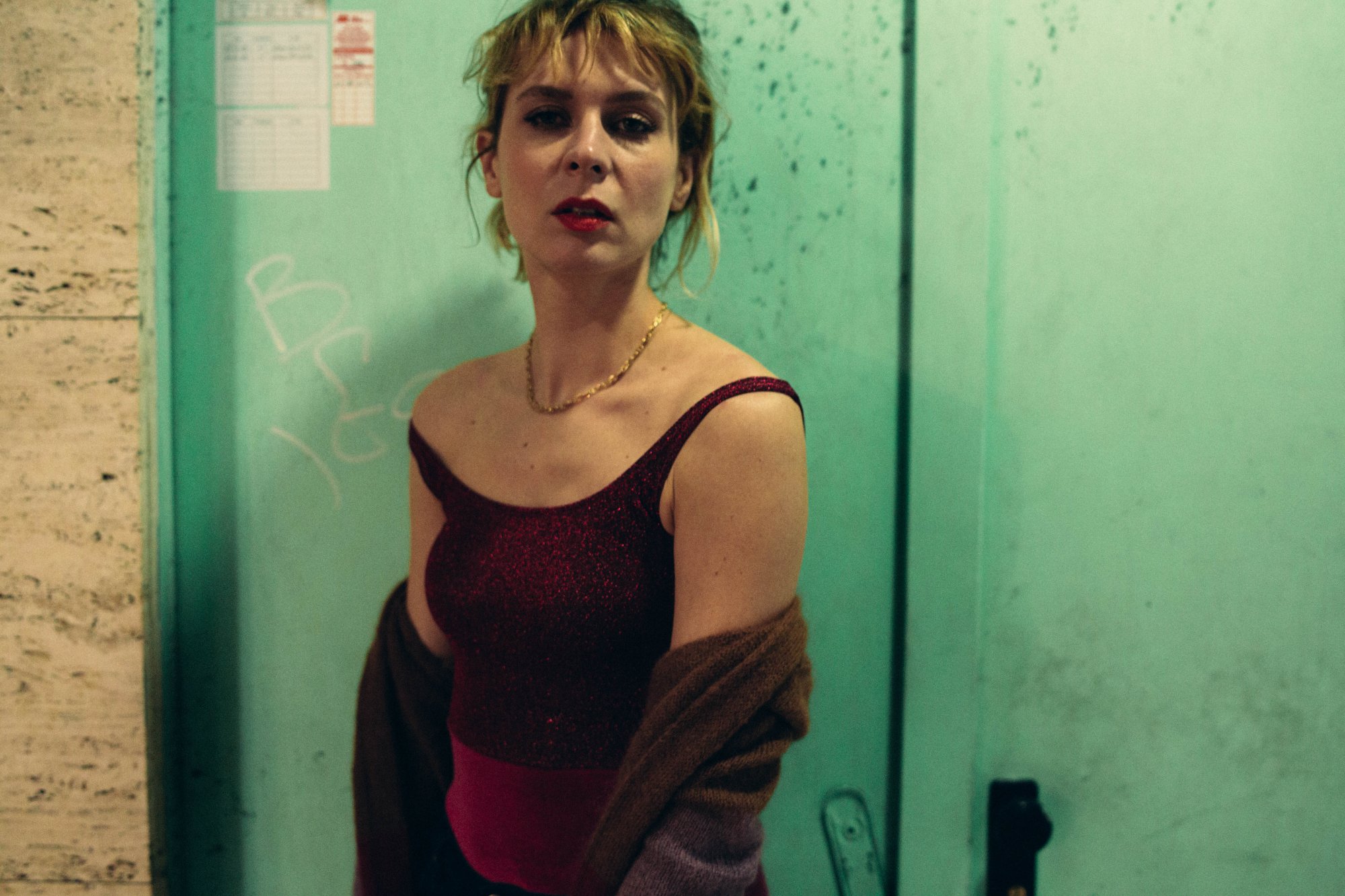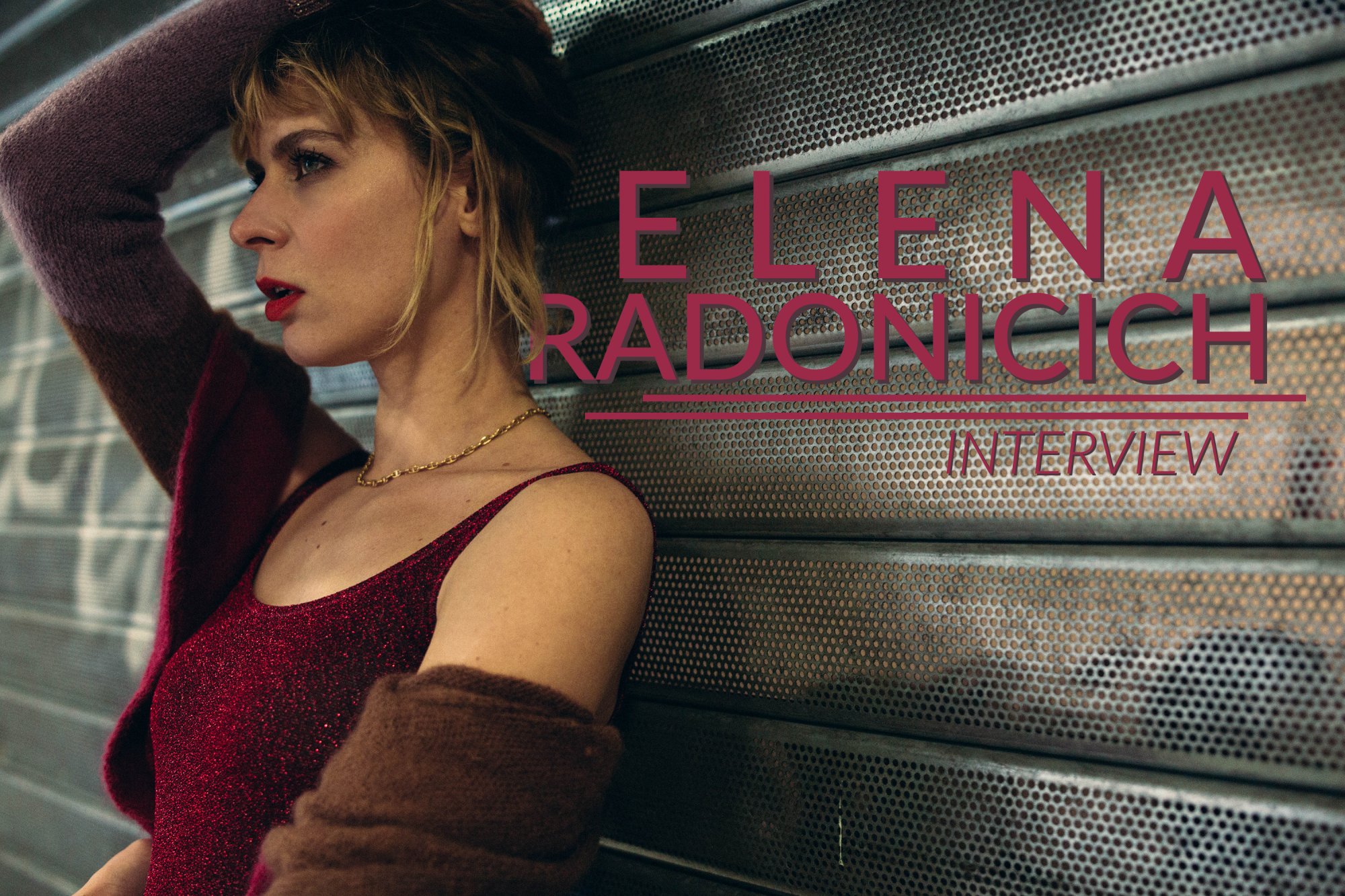The first time we met Elena Ranonicich, even if it was for a few minutes, it was in 2016 at the Giffoni Film Festival. After that interview, we had the desire to get to know her a little bit more.
Rome, 2018.
We had the pleasure of spending a day with her, in her beloved Rome that stole her heart so long ago. Here she took us to one of the most peaceful places to her: Termini. On her work-life, she also told us about the difficulty of seeing herself on screen, the respect you need to have for the story you are telling, as it was for the film “Fabrizio De André – Principe Libero” in which she plays the first wife of the late Italian singer, and how, in this moment of her life, she wants to rediscover that emotional violence that perhaps will bring a bit of disorder, but that is necessary to restore in her a sort of shamelessness that she says is missing right now.
Discover with us this tremendously fascinating and ironic woman: from her favorite TV series of the moment to the superpower she would like to have, here is Elena Radonicich.
________________________
What’s that emotion, that feeling, that makes you love everything you do?
________________________
Performing arts have adrenaline inside of them, it’s something physical that reaches into you and gives you so much fear and so much joy. Therefore there’s this aspect, almost like a drug that has the same emotion of a performance, mostly if it’s a live one but even when they say “action” on set when the take goes on.
That emotion, that feeling, especially when I do TV series or movies, spreads throughout the work, from the preparation to the moment of shooting a scene, to the one when you see yourself on screen, which is, by the way, the moment of suffering. Because the attempt to fall into a character the way I intend it, the way I learned it until now, is the feeling of empathy towards someone who’s written into the screenplay and who lives to do things that maybe you wouldn’t do or think. It’s an emotion of understanding someone else. And this thing keeps on regenerating, there’s no chance it can burn out since humankind is infinite in its possibilities.


“It’s an emotion of understanding someone else”.

________________________
You also did a lot of theatre. What did it give you?
________________________
I started with theatre, I started with studying at a drama school and then I did some plays, but my formation happened mostly at the Centro Sperimentale di Cinematografia, and my experience is far wider on the set than on stage. So I’m not one of those people who come from a theatre background, strictly speaking…I’d like to, but I’m not.
________________________
So would you like to go back on the stage?
________________________
Of course, it’s a place where the actor, when on stage, is somehow alone, whereas in movies you’re always inside a structure that’s deeply modified and stratified. Probably that adrenaline I was talking about is expressed in a freer way, and rather than expressing itself it shows, it gives you stronger emotions.
In some ways, compared to cinema, the theatre has more to do with life, because you express the art of a wholesome character, while on set you carry on day after day with unlinked scenes, a never-ending plugging and unplugging. But in theatre, it’s not like that, it’s like a flow, the run of an athlete, a moment. I’d really like to be back, recently I did some laboratories to try and experiment something different. It’s the place where, maybe, one experiments more. It’s very hard for me, as a spectator, to find a theatre piece that satisfies me, while it’s easier with movies and, as an actress, I’d like to do that kind of theatre that I would love to see.



________________________
What’s the feeling when you see yourself on screen after having worked on the set of a movie for a long time?
________________________
Sadly, I don’t know if I’ll ever manage to make peace with the idea of seeing myself from the outside, which is a paradox because, with this work, it happens all the time. But it’s somehow like when you listen to your recorded voice, in a way it’s almost a bad thing if you get used to it because it means that you got used to seeing yourself from outside and that can make you less natural or genuine.
After all, the character is itself a construction and thank God it is because otherwise we would be doing the same characters over and over again and being yourself and interact with the world would be enough; and that has nothing to do with acting in my opinion, although it can be used as acting. What I feel depends on how much I focus on the character, and on how is the work, it really depends. In general, the first feeling is really disturbing, I look at myself and I feel embarrassment, discomfort, horror, but luckily this thing changes screening after screening.
I need time to adjust to the fact that I have that face, that I’m saying those things, and make peace all over again with the fact that other people will see me, but most of all with the fact that when I look at myself I don’t recognize myself. And that it should be also something positive, not recognizing yourself, but there’s that moment when you say, “f**k, wait a minute, I’m good, aren’t I?” and the perception of what you do is always so different from what it appears to you. More or less like when you think you’re funny and then when you walk away, other people say “damn, she was a b***h.” And this, of course, happens also with your work, with the expectations you had about it: you thought you did something well, or in a certain way, and then it results in something else.
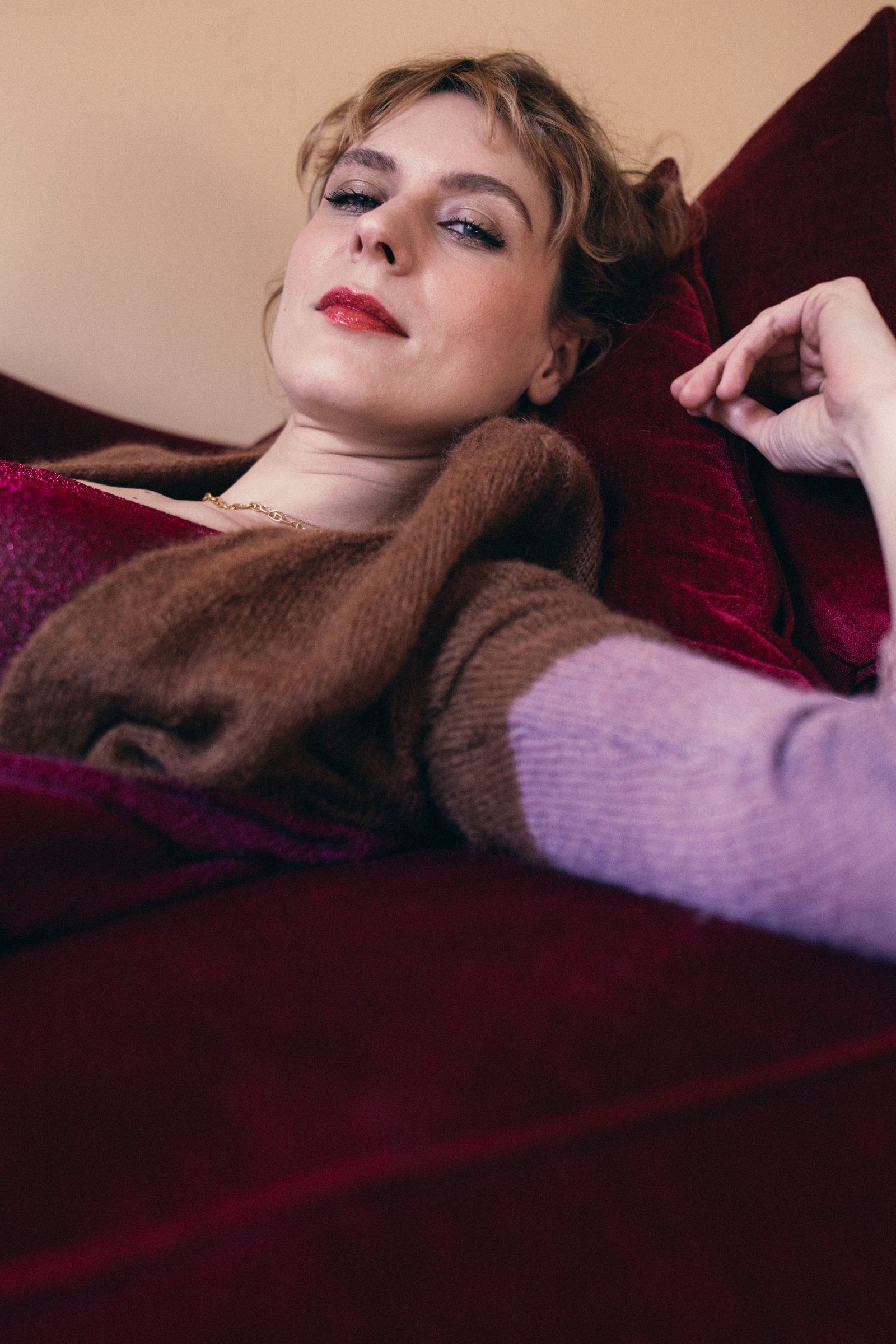
I read this interview with an actress, once, who said something I had found beautiful, so I’m going to propose it again as if it’s mine [laughs]: You like yourself and you’re beautiful, meaning that you appreciate yourself, even if your not canonically beautiful, when you’re coherent with your character. When what you’re doing is right, you radiate beauty. When what you do is wrong, crooked, out of time and synch, then your interpretation and what you radiate, therefore your beauty, changes and can become disturbing, not only to your eyes but to the ones of the audience, which is so much more important, of course.
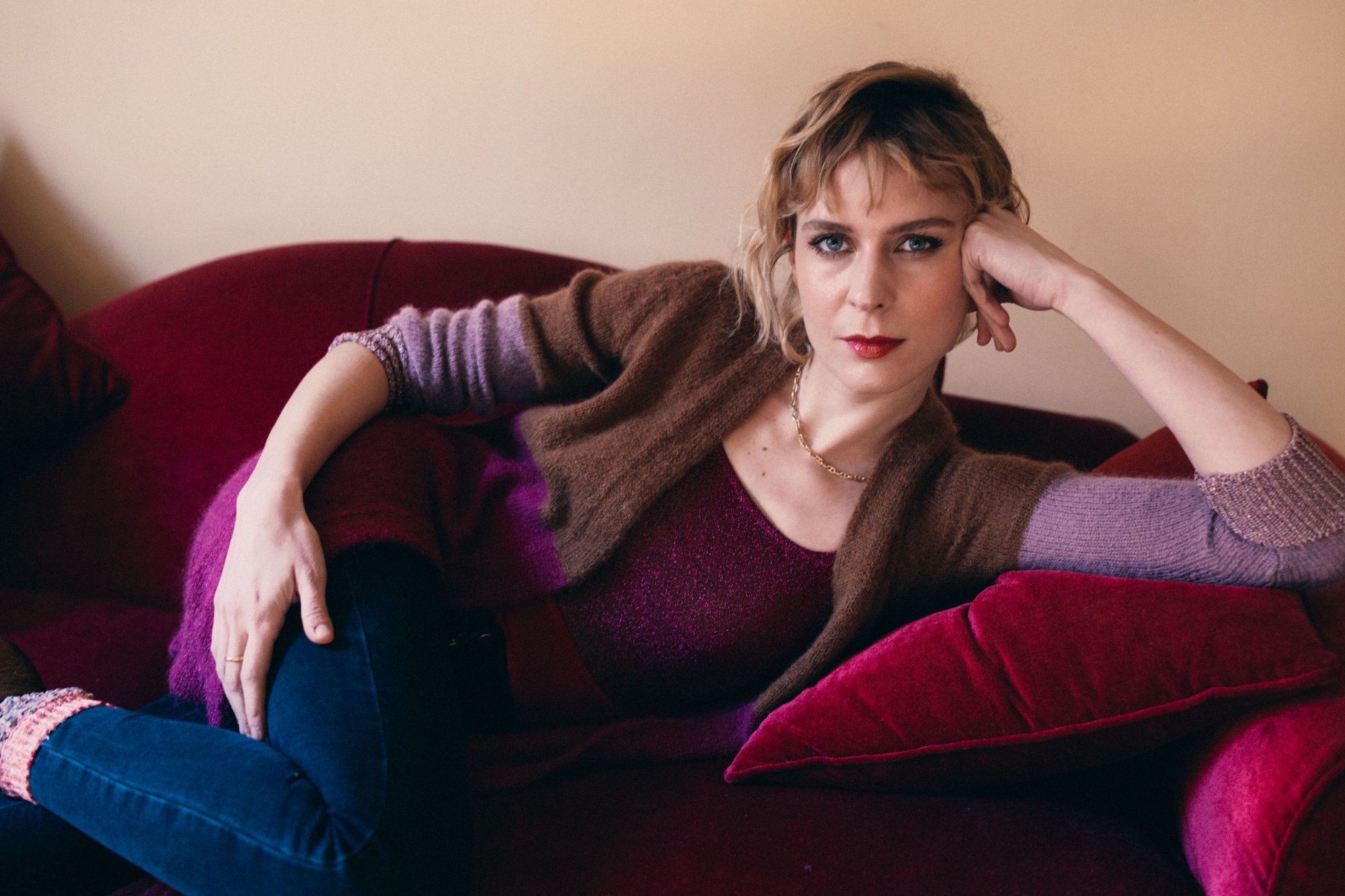
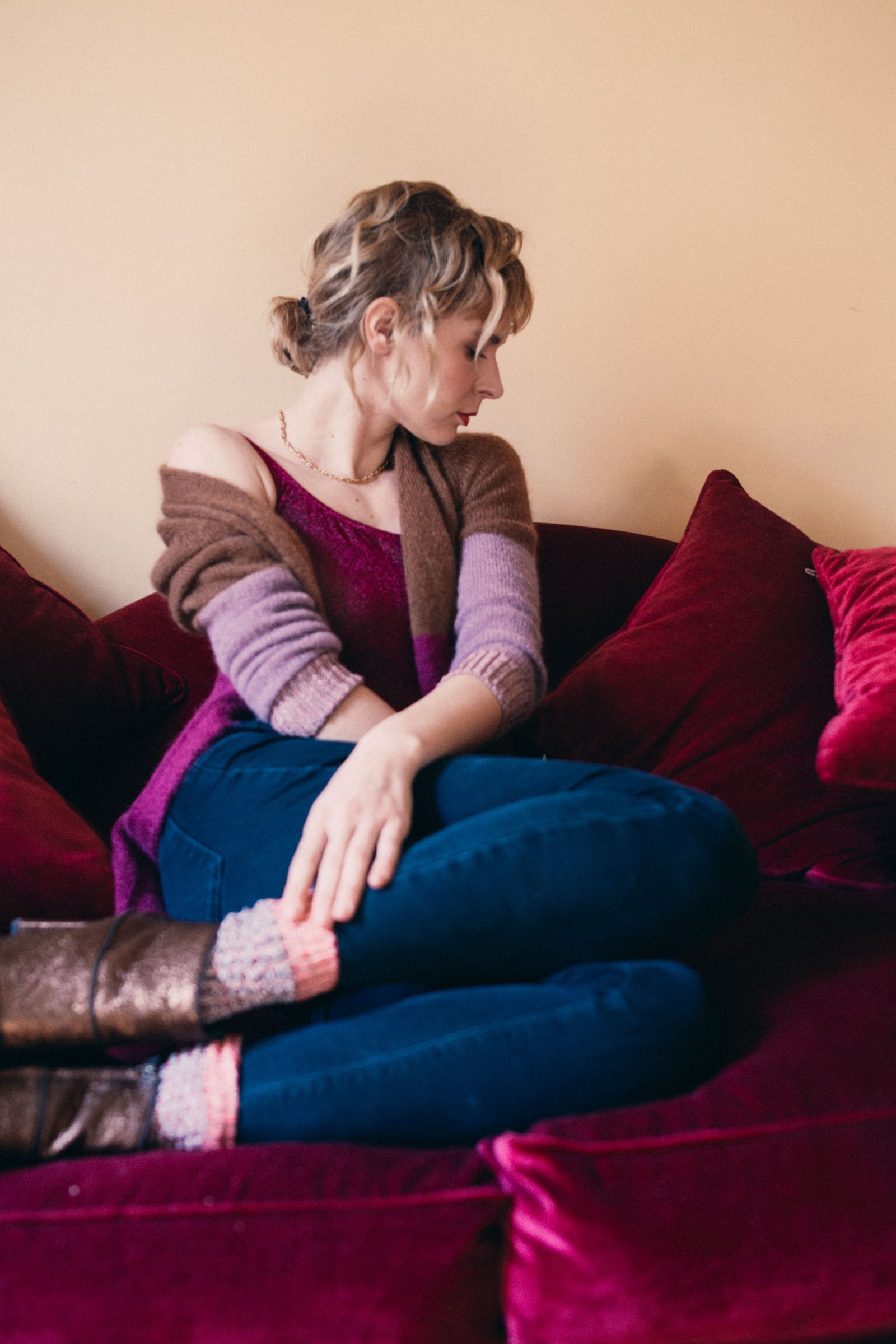
When what you’re doing is right, you radiate beauty.
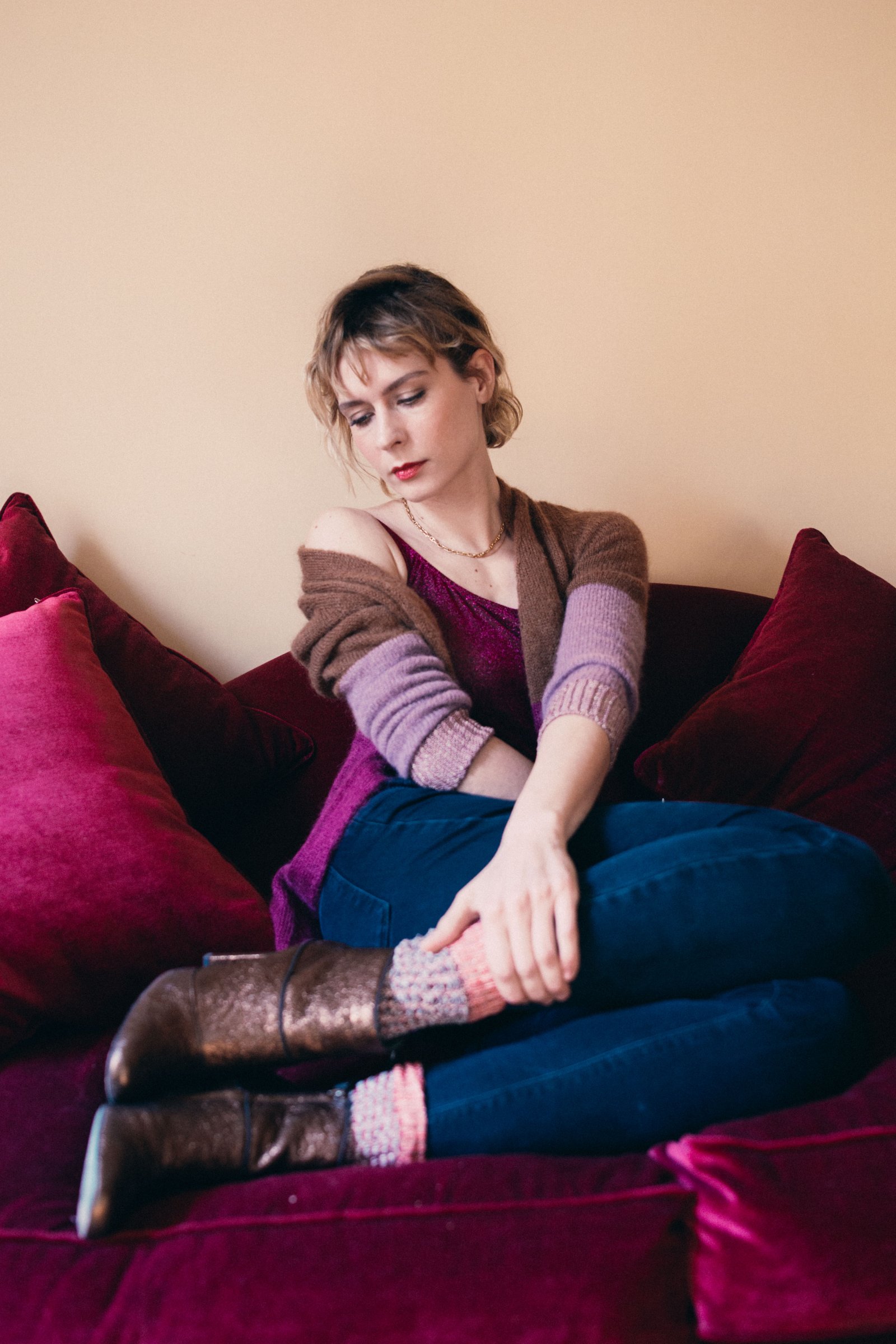
________________________
On the movie about the late Italian singer and songwriter Fabrizio De Andrè, how much responsibility did you feel while playing that part and how did you approach your character?
________________________
I felt a responsibility towards the story, rather than towards the character, it was about the whole movie. It was a feeling shared by everyone on set: this desire of doing something honest. I won’t say something “worthy,” because I don’t know about it, but something honest towards a figure that, as well as being a giant figure of the ‘900, is also someone very important for the majority of Italians. He’s an icon that each and every one of us carries inside and that means something so, if you betray that thing, you also somehow betray that small memory inside of everyone. There’s this risk, but then not everybody has seen the movie, not everybody identifies themselves with what we did, but I felt like the important thing was being respectful.
As far as preparation is concerned, there was a very beautiful moment of this movie when we were all together, we worked with the screenwriters, with director Dori Ghezzi, we confronted and helped each other a lot. I played a real character who’s not alive anymore, and whose story has been told by Dory himself beyond the screenplay. So I put myself out there and I listened.
________________________
For some roles in particular –”Alaska” or “Fabrizio De André – Principe Libero”– you played the part of a rather rational woman. Elena, in real life, is more passionate? Do you see yourself in these roles?
________________________
I really hope that my life is nothing similar to the one of those two women [laughs], and yet, although they have two different ways of dealing with things, yes, there’s something similar. I’m impulsive, very dramatic. I’d like for a friend to say how I am, because maybe one romanticises oneself more than necessary. But yes, I think I’m definitely passionate.
There have been moments of my life when I have been clouded by what I was feeling, and the managing of these things never followed channels with a deep meaning…I’m not capable of doing big speeches about feelings. Even though the rational part of myself pridefully states that determination is going to save us all, not feelings. Feelings are overrated, since one can feel like beating someone in the streets or stealing someone’s wallet, but is culture that makes the difference. And that’s something I really believe in, the will of loving, of saying “I want to love you” and not “I love you,” which is clearly something beautiful but is also something that falls on your head: “I love you, I can’t help it, I saw you yesterday at the bar and I love you”.
I suggest you watch “On Body and Soul,” which is a crazy movie in which, at some point, she sits down and says “I can’t help it, I love you since four minutes ago.” And it’s true, because sometimes one feels things that are huge, and also unexpected, and utterly senseless. I don’t know, it would be great to be able to live on the borderline between these two things, but the truth is that, in my life, I really swing between these two moods.
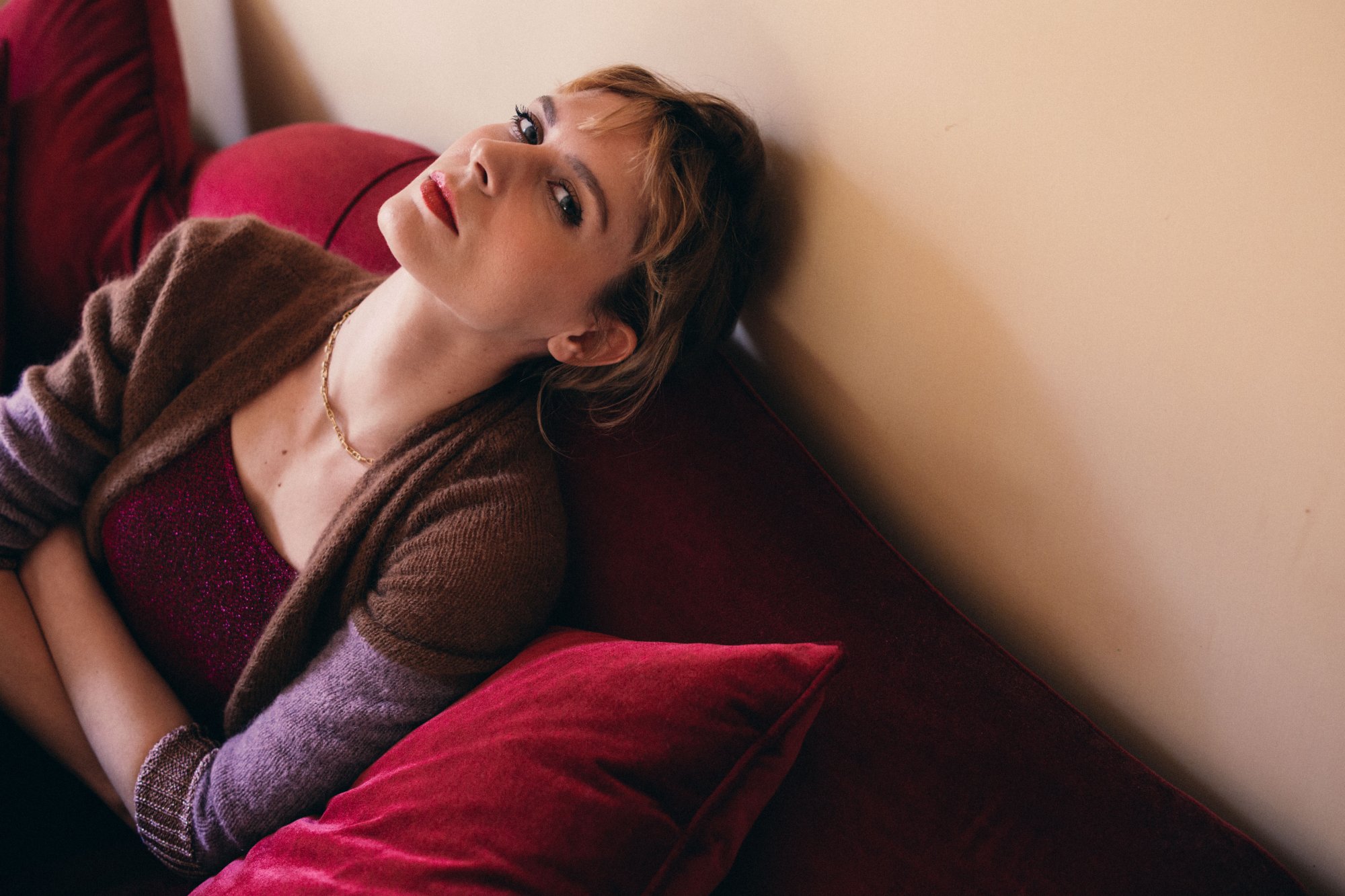
“…the rational part of myself pridefully states that determination is going to save us all, not feelings.“
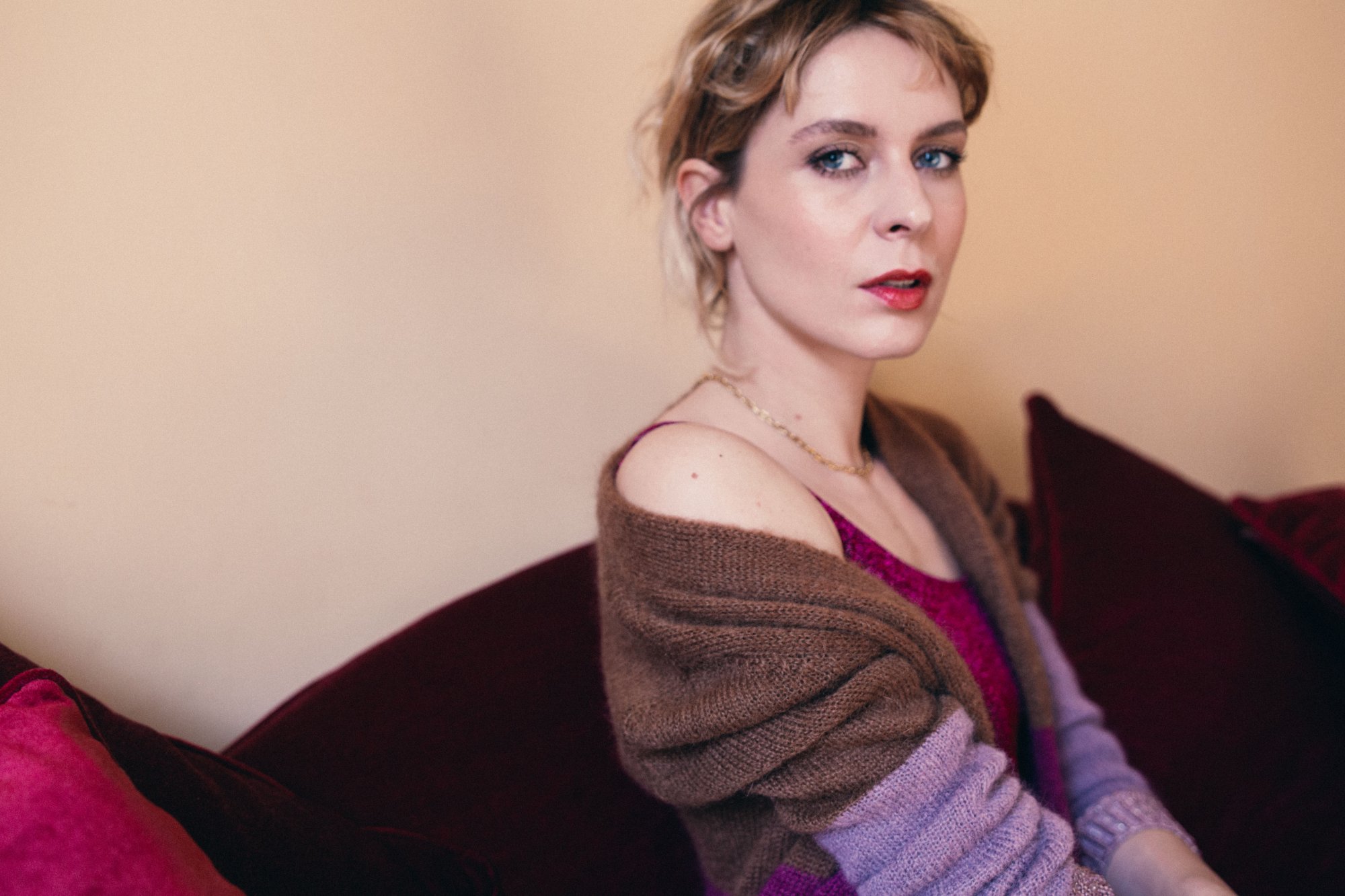
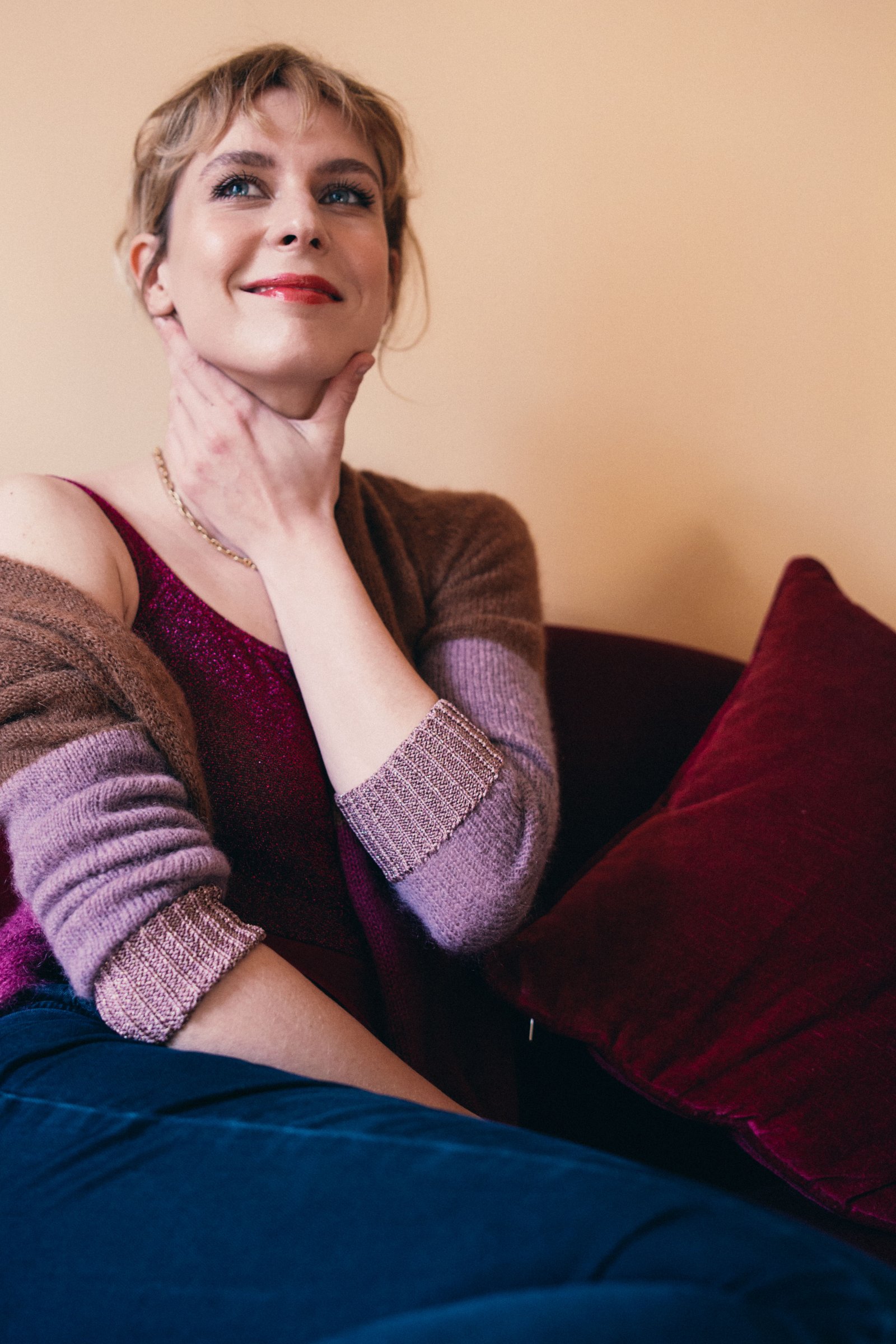
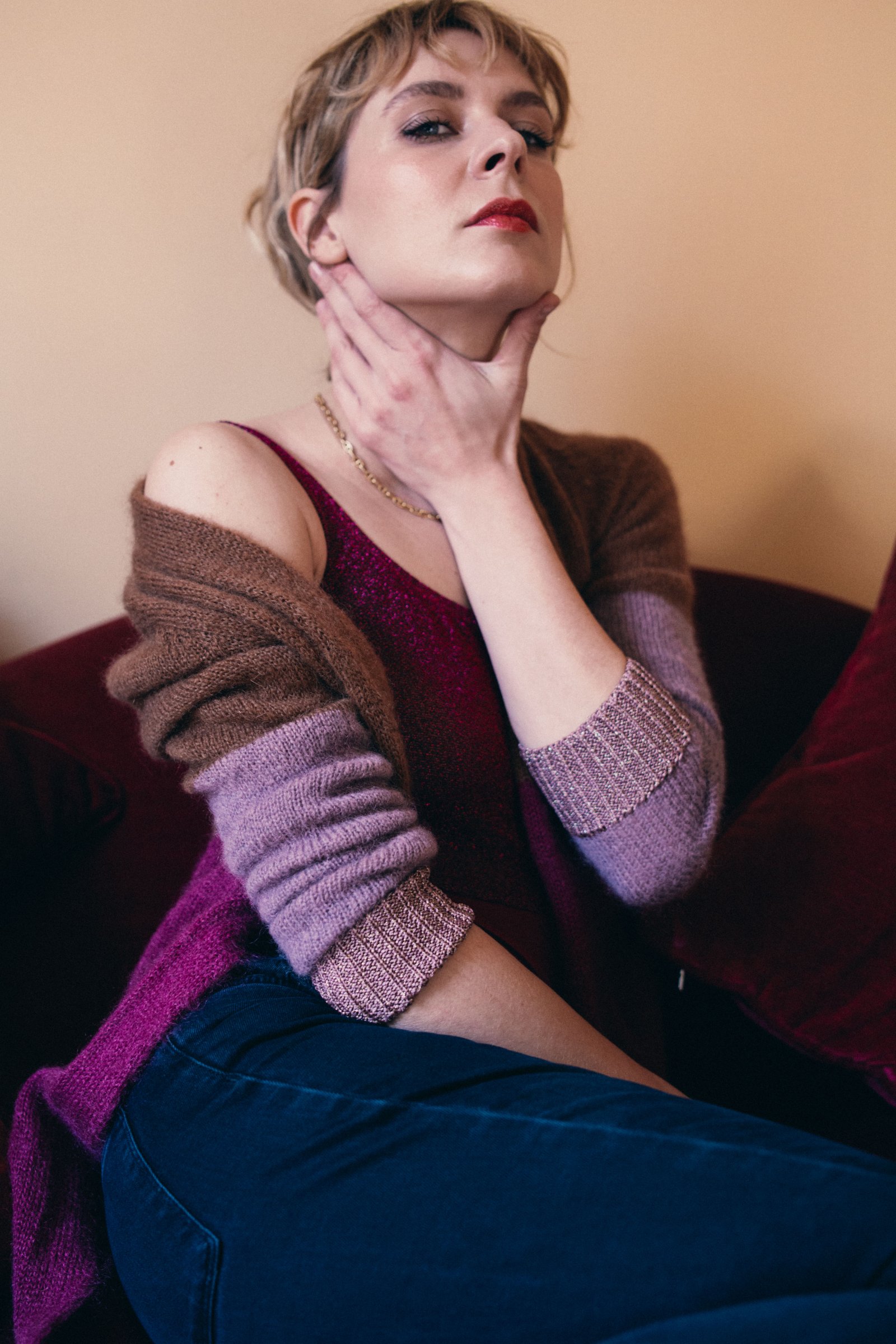
________________________
Is there a character you played that you had a particular feeling with, one that you particularly liked?
________________________
I never think of a character in terms of resemblance with me, because I have a hard time defining myself, I feel like I’m constantly evolving and therefore I’m in a perpetual state of contradiction, and I’m not speaking about ethics. When I read about a character I never think, “oh, I would’ve done the same,” and it doesn’t even amuse me, I really don’t care.
However, there are a lot of characters in which I find those famous roads I never went down, but I never took them maybe by chance, maybe because I had the lucky chance to be born in a certain place with certain people. So, for example, Puny (“Fabrizio De André – Principe libero”,) who is a character that I loved deeply although I don’t believe it would occur to me to live in that situation (or, at least, I hope I won’t): I recognised myself as a human being to which, hypothetically speaking, something like that could have happened. I mean, if my life would have gone differently, that kind of frustration she feels exists inside of me, exists the attempt of keeping everything together when things go down, exists the will of looking happy when you’re not, exists the taste regarding the aesthetic of existence, exists a certain shallowness. All things that exist but that do not coexist inside of me all at the same time, and that makes so that I’m not that character.
________________________
Was there someone who gave you some advice regarding your career that sometimes you remember, or that you found useful?
________________________
Sadly I’m not used to following advice because I forget them, but I’ve always been given plenty and now I’m trying to follow one of them. A person that knows me very well and that loves me told me that I should retrieve a bit of violence, and I think that’s really truthful with a phase I’m currently living. You know, not being too drawn to order; often one makes the mistake of thinking that something in order, comprehensible, and most of all encryptable, is reassuring and therefore generates more love. If I’m a neat, clear and tidy person, this is going to inevitably create around me an environment that feels sure and made of people who will most easily feel at ease with me. This thing can make sense in life, because it also has something to do with growing up, with becoming more accommodating under a certain circumstance, but makes no sense at all in acting. And it’s a mistake that I made, a bit because of laziness and a bit because of habit and of interlocutors who weren’t brilliant. Now I’m trying to follow this advice and to find my inner violence, which is nothing like beating people but re-owning one’s own shamelessness.
And then, another tip I was given, which is a mantra really, is that one should never stop studying, and that’s true for everybody, your whole life.
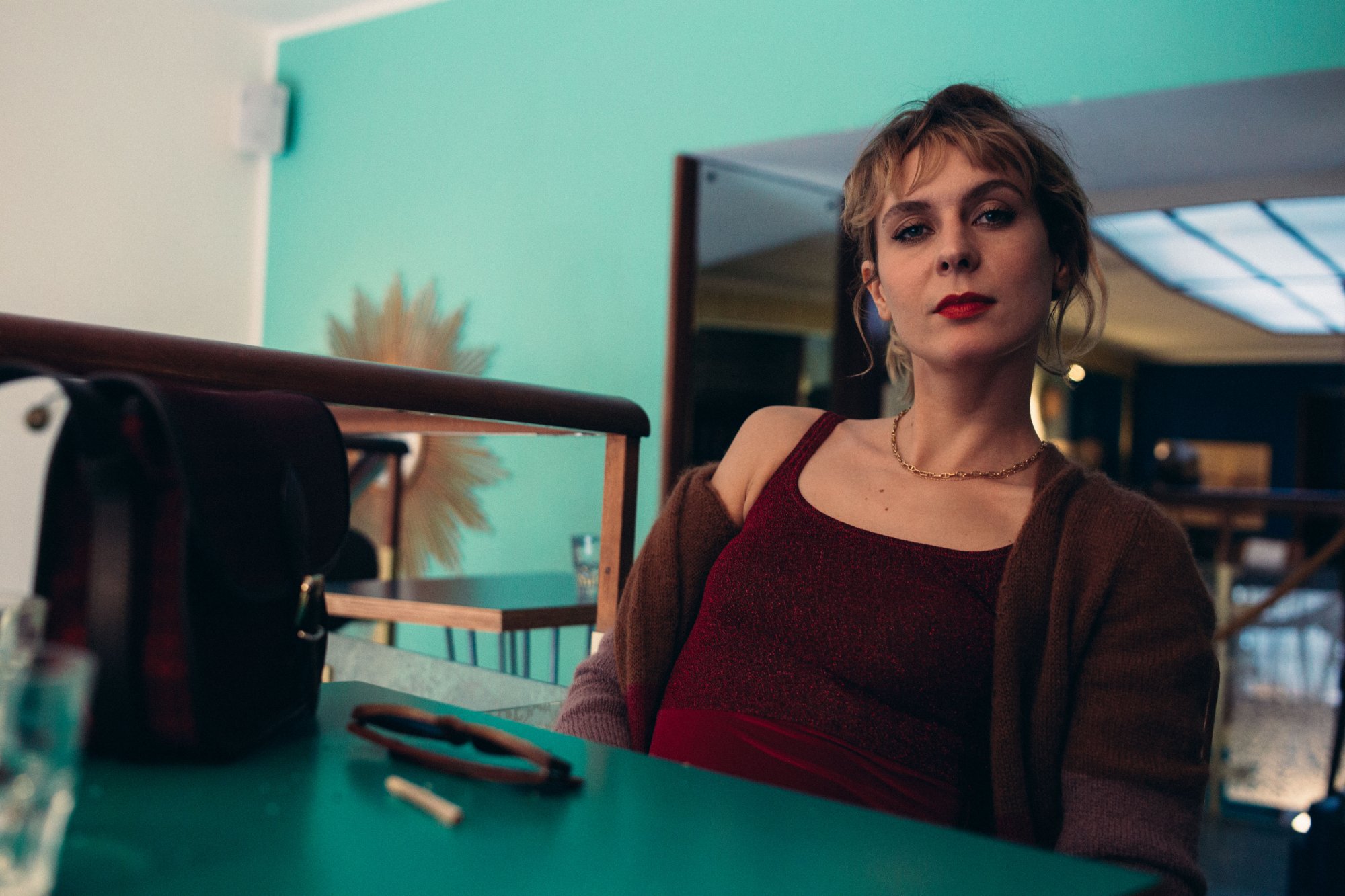
“…I’m trying to follow this advice and to find my inner violence, which is nothing like beating people but re-owning one’s own shamelessness.”
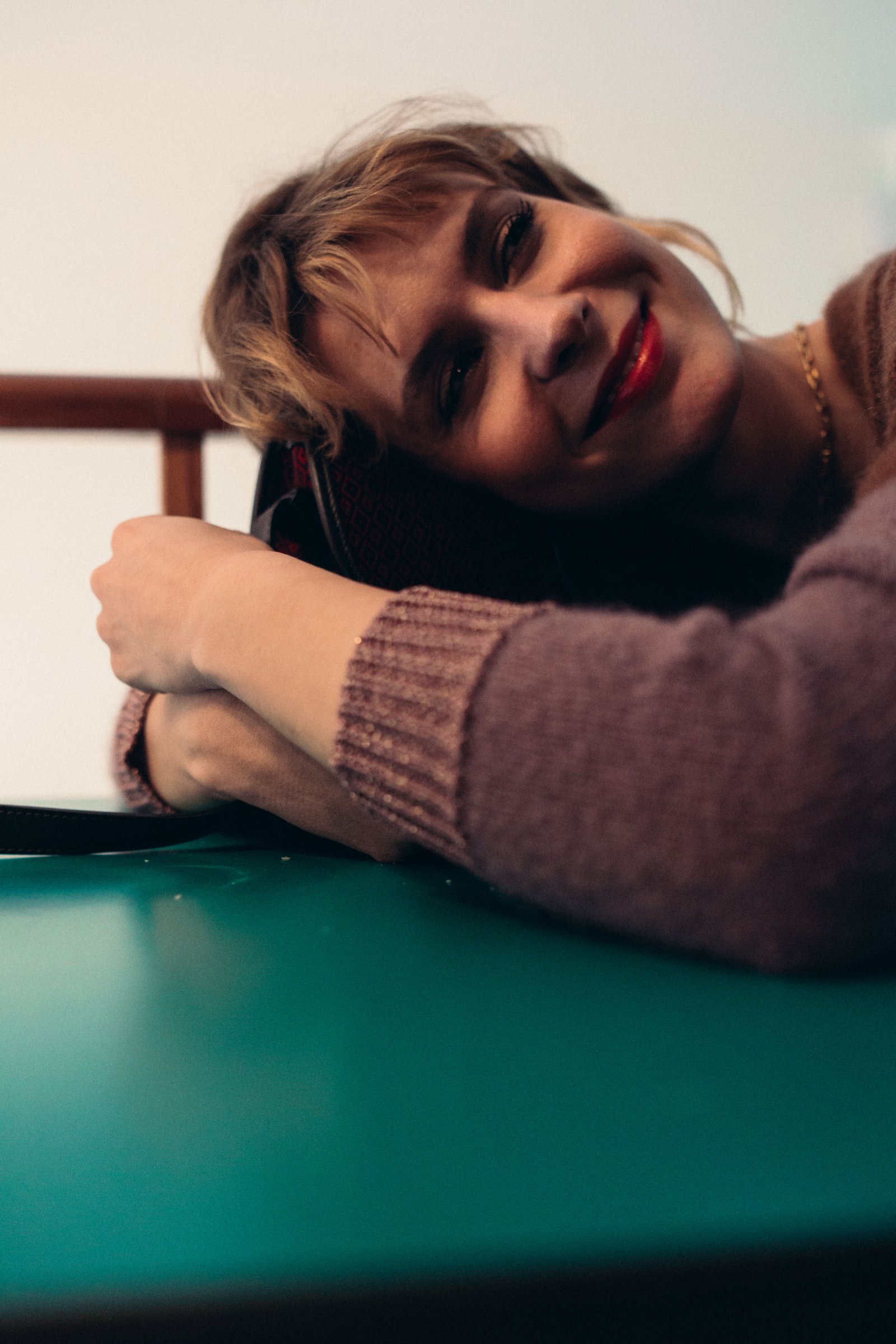
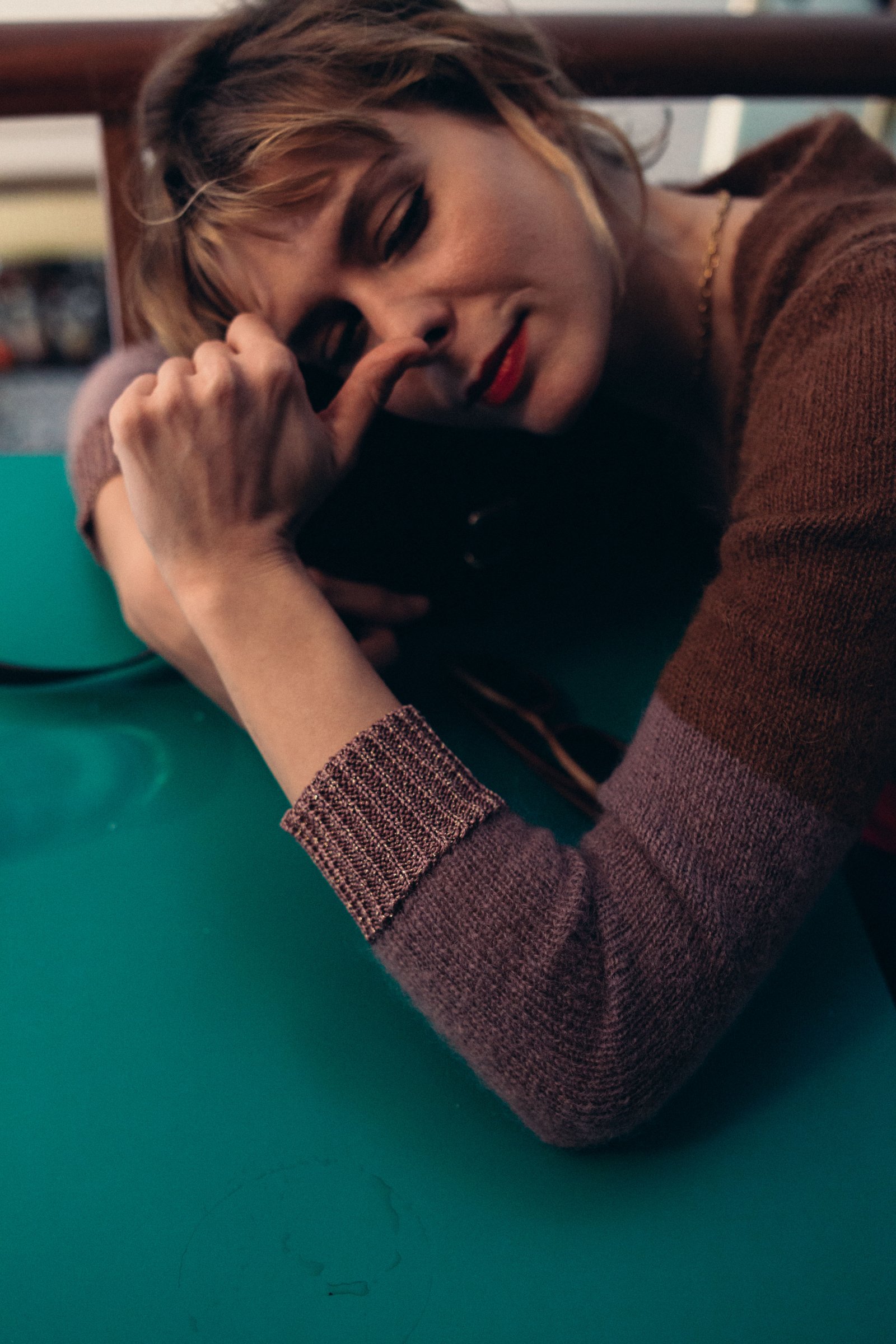
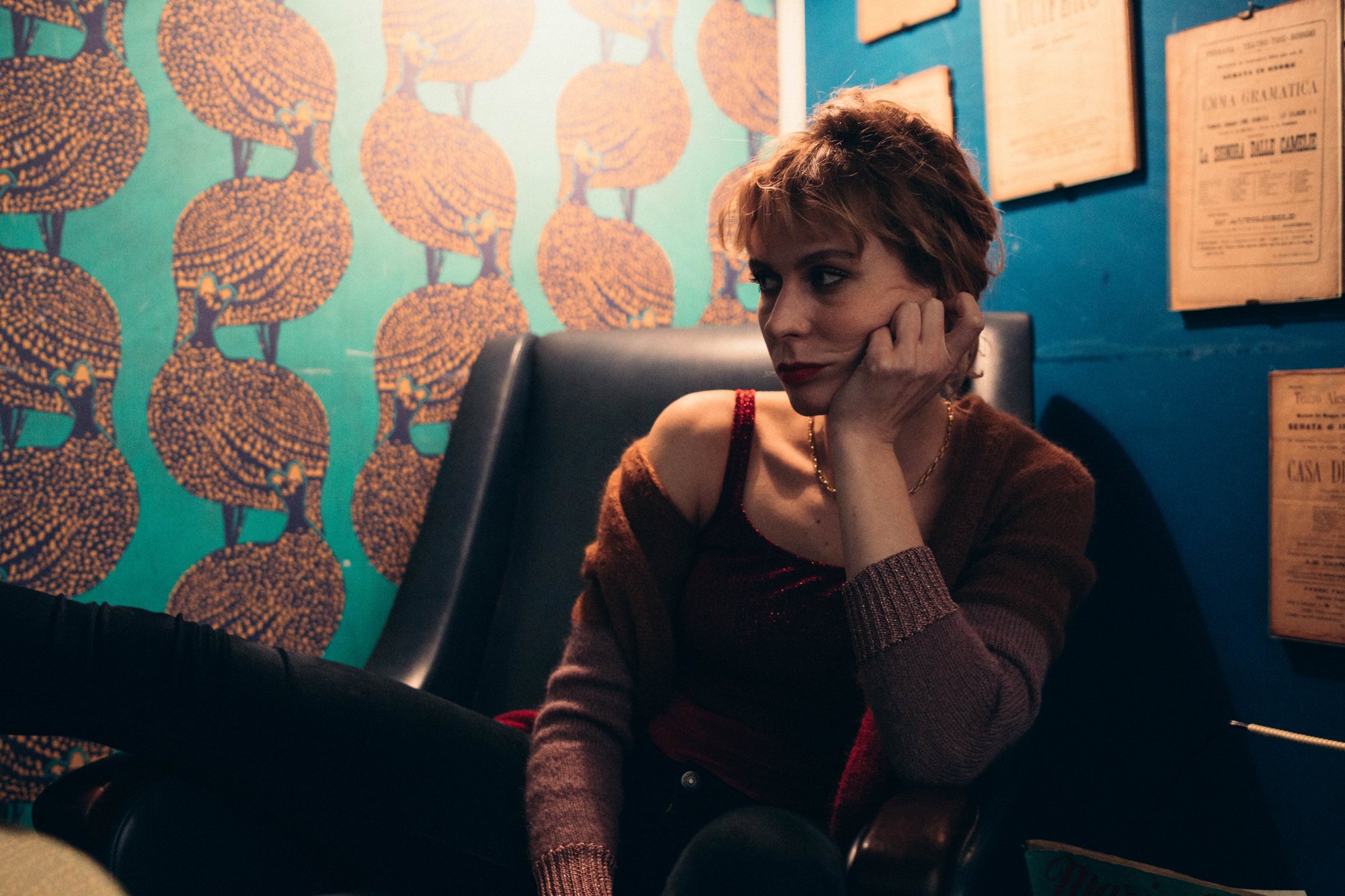
________________________
What’s your dream and what’s your dream project? What character would you like to play?
________________________
I don’t have one, because I understood that dreams can’t be changed. I know how I want to feel, not what I want to do; I dream of feeling in control of my abilities, this is my dream and I believe that, in the future, that can turn into a concrete reality.
What I think is my primary objective of work, in general, is this: being free. And, to link back with what we said about violence, being free of being violent, free and most of all aware. Aware means like “being able to use one’s abilities”. Everything is exercised: will is exercised, freedom is exercised, love is exercised…everything.
________________________
What are your future projects?
________________________
There’s a movie by Cosimo Messeri coming out, “Metti Una Notte,” which we have already presented at the Rome Film Festival. Then, shortly, “In My Room” is going to be out — although I still don’t know where — it’s a movie set in Germany and directed by German director Ulrich Köhler. It was an extraordinary and, at the same time, really strange experience.
Now I’ll be involved in the shooting of “La Porta Rossa 2” and, probably, “1994.”
And here in Milan, I finished shooting “Palloncini,” by di Ilaria Chiossone.
You have a lot of things going on…
I’m really lucky.
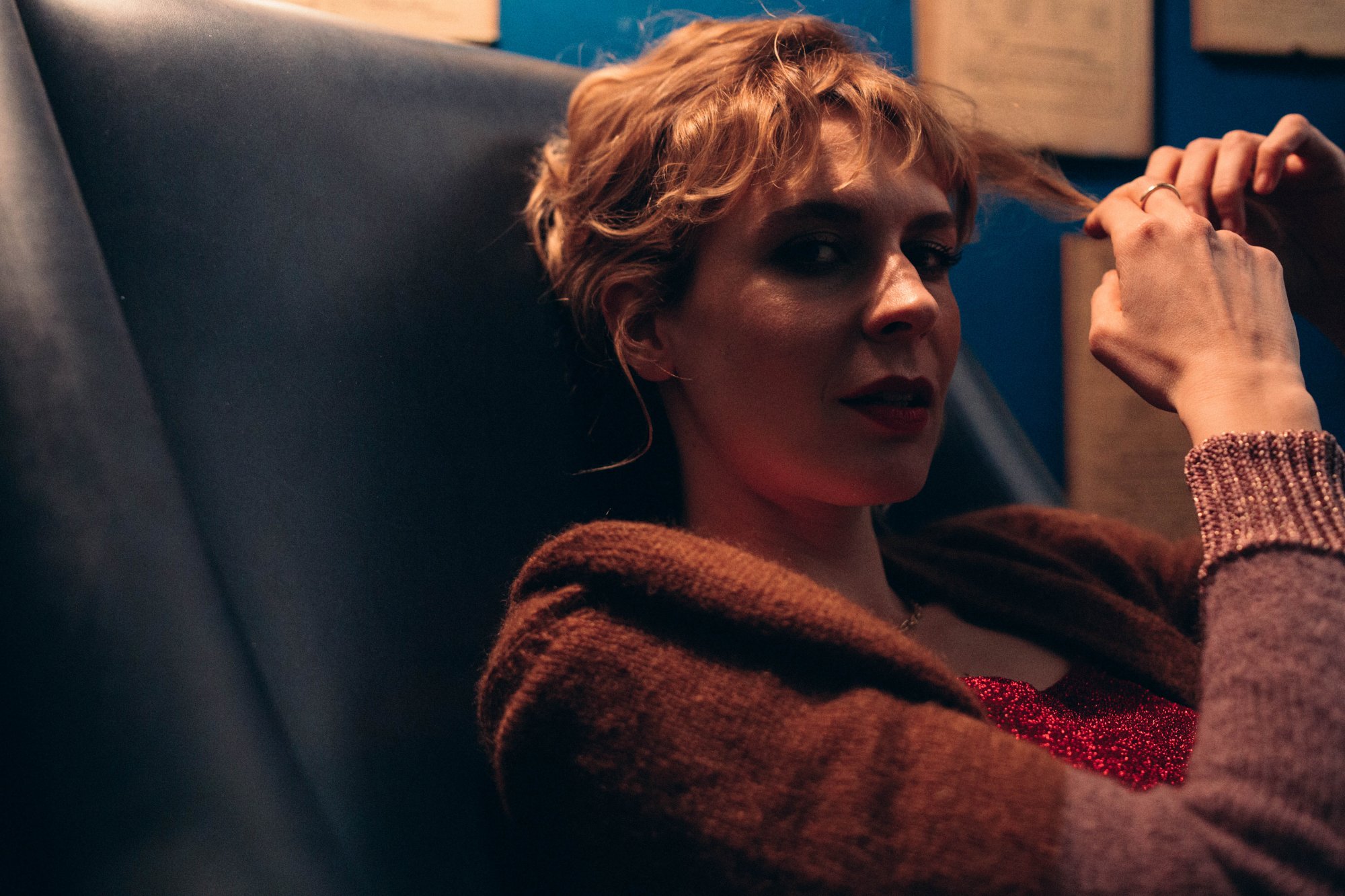



Everything is exercised: will is exercised, freedom is exercised, love is exercised…everything.
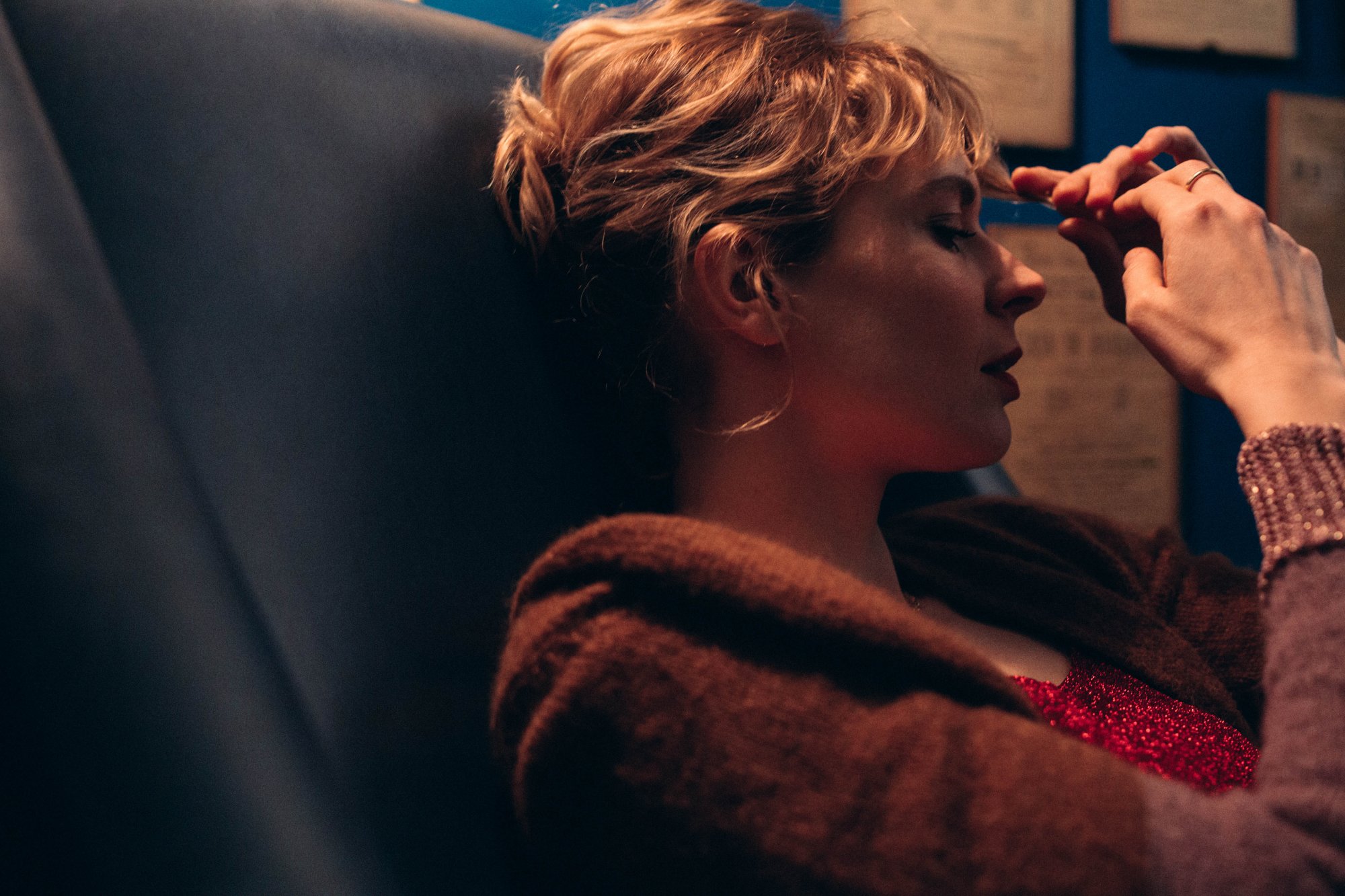
________________________
Abroad indie movies have recently been deeply appreciated and also awarded. Do you think that in Italy there could be a level of indie cinema just as consistent?
________________________
I think so, and I think that it depends on stories.
I did a lot of indie movies; I loved each and every one of them like crazy because inside of it there’s a desire, a willpower and a creativity that are incredible. I believe that indie cinema in Italy — although I don’t really know everything — will be considered by the audience only when it starts creating beautiful stories that engage who’s watching. The audience is king and, although you, Author, are forced to be honest with yourself and to follow your own authoriality, intercepting the audience in some other dimension must never be forgotten (which doesn’t mean becoming mainstream, otherwise what f**king kind of indie cinema is it?)
Let’s take “Lady Bird:” it’s an indie cinema that winks to the audience because it’s very dependable on who’s listening. One shouldn’t be surprised that a certain kind of cinema doesn’t meet the interest of the audience if it’s not thought for it.
To be clear, our ideas about audience should be revised, since it’s identified as a group of dumbasses without no intellectual tools and no will to do anything. So the audience is both under and overestimated since there’s nobody that asks “Would I like this thing, as a viewer?”
And that’s the same feeling I get when I write; certain love letters that I’ve written when I was young were like, “wow, I put my whole in this, all my life” and then, when I re-read them, they were like, “wow, this is f**king boring.” So, even if you think you’re full of good intentions, even if you think you’ve put a lot of effort in it, it doesn’t it occur to you, in the moment when you re-read it, that maybe this thing has stopped interesting you, and those four people that are like you?!
It’s an amazing kind of blindness because it’s a question that you must ask yourself, at some point in your life.
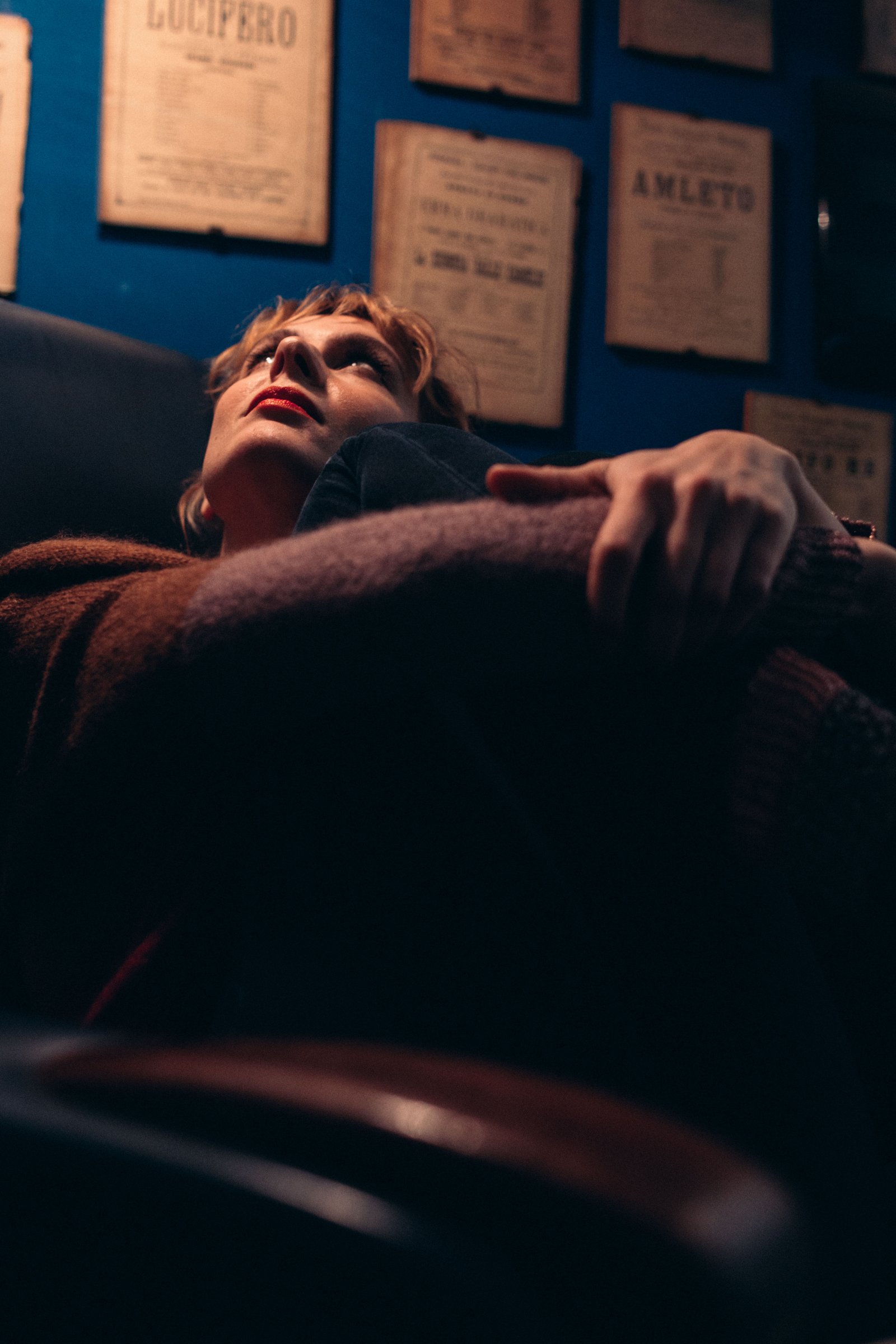


________________________
It’s true! One must think of the audience…otherwise, you start creating and doing things for yourself alone.
________________________
Exactly, one must have a real perception of the viewers. Who’s the audience?
Otherwise, as you said, do things for yourself and your club of intellectuals, or for that proverbial middle-class stereotypical housewife, the one from Voghera, that I would love to meet since she stands for the stereotype for the average audience.
I was in Voghera, once; I got off the train for a connection and, as soon as I read Voghera, my heart was sad. Poor things, these people from Voghera…because, in the end, what comes to mind is this woman with 5 kids that, while she stirs the soup, with a hand takes off one sock, breastfeeds, sets the table and in the meantime keeps stirring, but also has to follow everything you’re proposing to her: this is the average viewer.
________________________
As you said, it seems impossible to perceive the audience as a rightful middle ground, but there are two extremist ways of seeing it…
________________________
Well, there are amazing examples that managed to do that and had great success: for example “They Call Me Jeeg,” and that’s not the only case, because there are many more. Then it’s rightful to say that, from the workforce and institutions sides, everything should be supported, because if you represent cinema in Italy and sell an indie Italian movie that manages to talk to a lot of people, you should be able to give it the possibility of being watched.
In fact, at the bottom, we encounter a matter of “distribution,” which is the base of all this and that’s dramatic; they screen the movie a day and a half and then they ask you how much money you raised, or you’re out. You see, there’s more than one problem; there isn’t only the author, locked in his room, or the issue of the audience, there’s also this… and in the end, I think that this is really the first problem. Also because here in Italy, when someone manages to break through with a work and an indie production, breaking the wall and getting to the broader audience, everyone gets excited and the idea is “look, with a 5 Euros movie you can get to the general public!” so everyone gives you 5 euros.
Instead, if you invest in an industry, as it happens in the USA, you feed it and finance it and develop a lot of projects. It’s clear that, out of thirty screenplays that are being developed, just one will be selected for a pilot that, maybe, won’t even be shot. In Italy, you can keep waiting…
Either there’s no money to finance the projects, or they are badly invested or I really don’t know, but I know for sure that they don’t even develop ten screenplays and then choose one. It’s clear that it’s something about the numbers; I’m not saying “we’re losers, other Countries are cool.” It’s a matter of money.


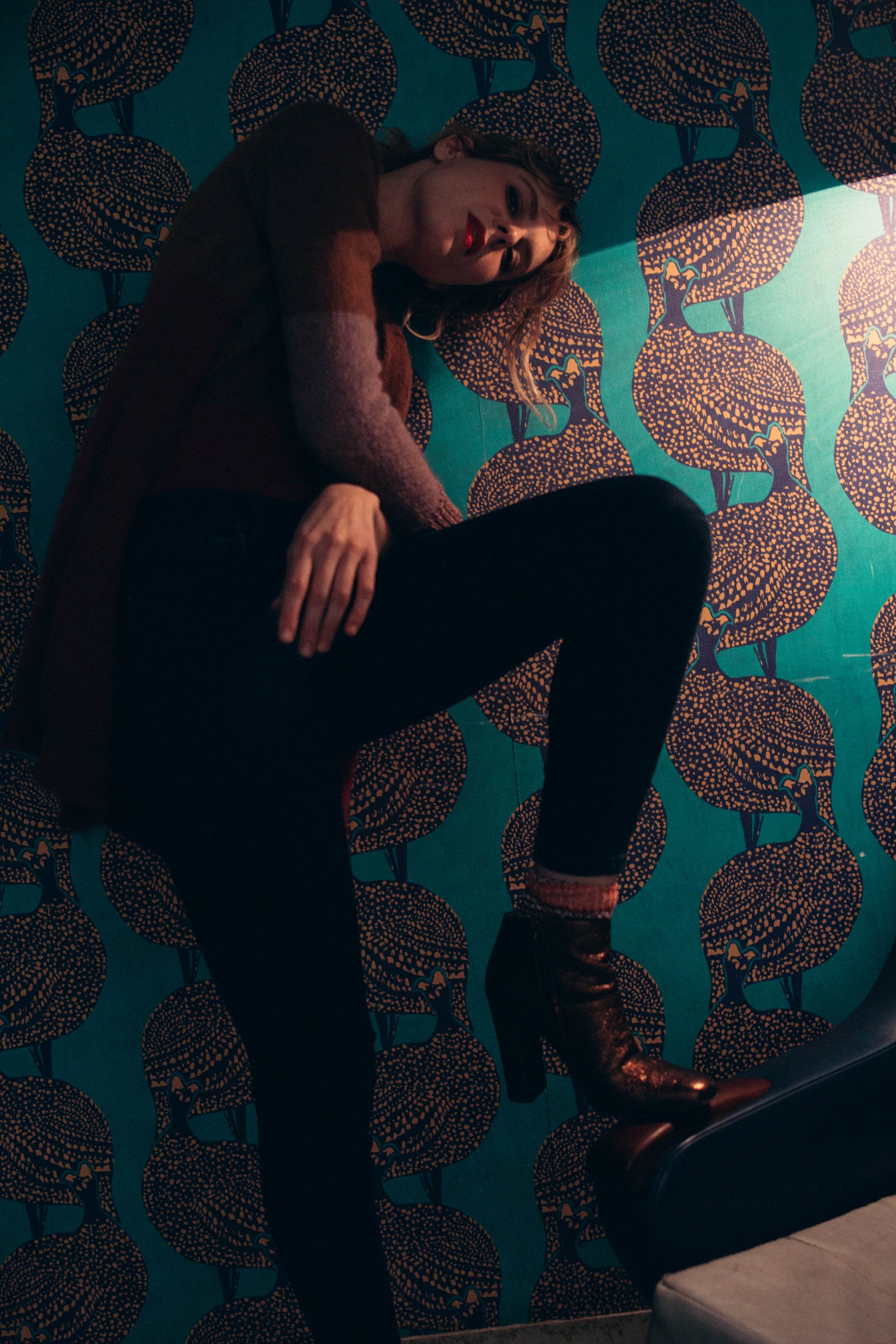


“I did a lot of indie movies; I loved each and every one of them like crazy because inside of it there’s a desire, a willpower and a creativity that are incredible.”
________________________
A movie that you saw recently…
________________________
Guadagnino’s movie “Call Me By Your Name” changed my life. It really shocked me.
It’s a movie that lingers in your mind…
It really upset me; it’s an incredible synthesis of power and grace, most of all because it tells things that are deeply true, both about people who felt those things and about those who never felt them. I value it as a magical work that changed me and, as you said, it stayed with me. It’s a movie that reoccurs in your thoughts, in images…the images of this movie are something that is going to stay with me for the rest of my life. It’s, undoubtedly, something that enriches you.
________________________
Do you have a director or someone you’d like to work with?
________________________
I can’t answer this, they’re really too many. Truth is, I’m looking for somebody who really wants to work with me.

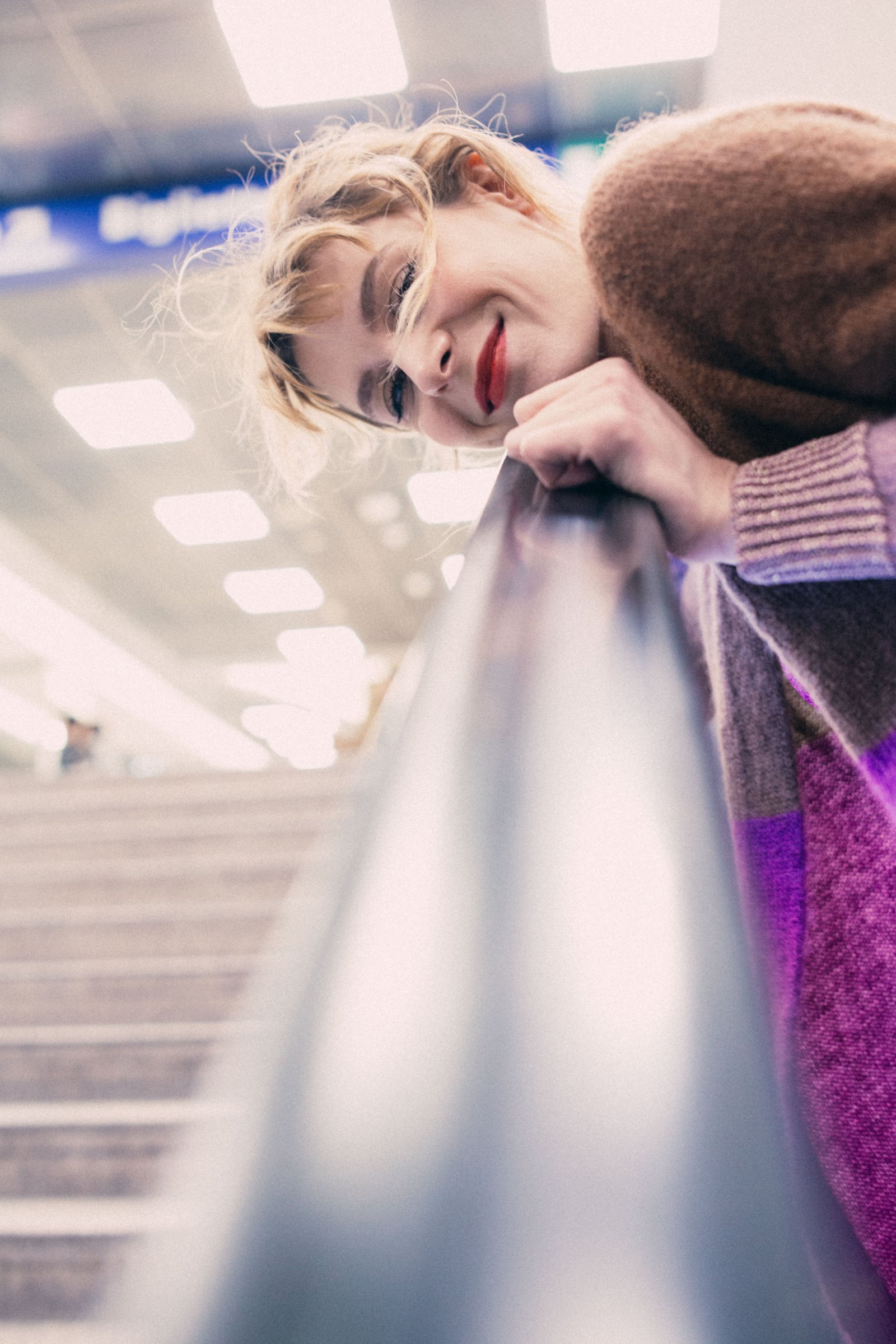

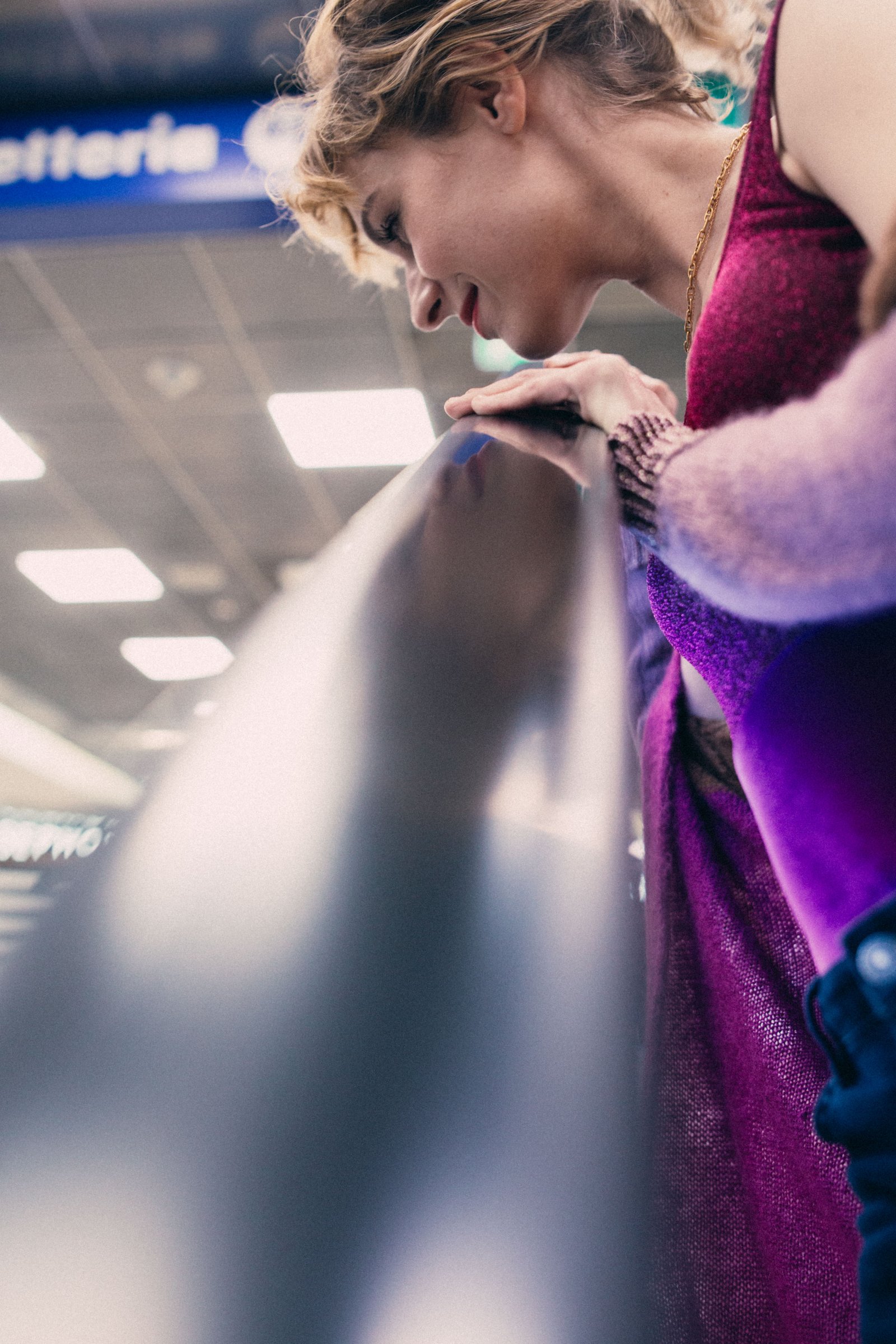
“I value it as a magical work that changed me and, as you said, it stayed with me. It’s a movie that reoccurs in your thoughts, in images…”
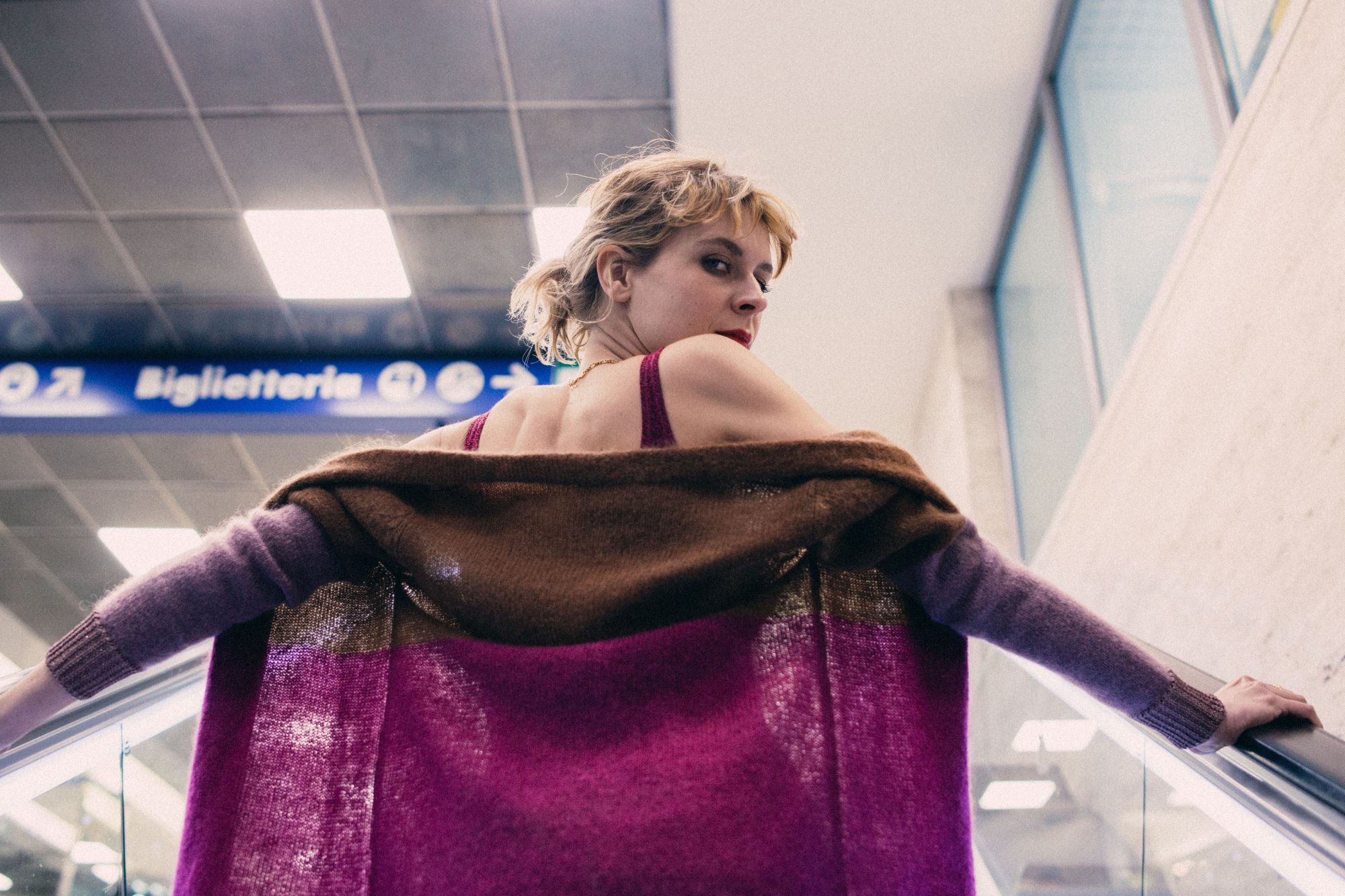
Must have on set: Maybe some good snacks, some chocolate. I shot the movie “Banat” between Romania and Macedonia and it was the end of me! I was pregnant and really bought tons of Milka chocolate! In the end, food is a comfort — it shouldn’t be, but it is — therefore I love having lovely and sociable people who offer me food and that’s one of the privileges of being an actor that I couldn’t do without, for now: people asking me what I want to eat.
Happy Place: I don’t have one… or maybe, Termini train station; when I get to Termini I’m happy and I’d like to live there…or, maybe, it’s better not.
Favorite word: It’s not a word, but “Don’t overestimate yourself.”
Favorite movie as a child: “La Boum”

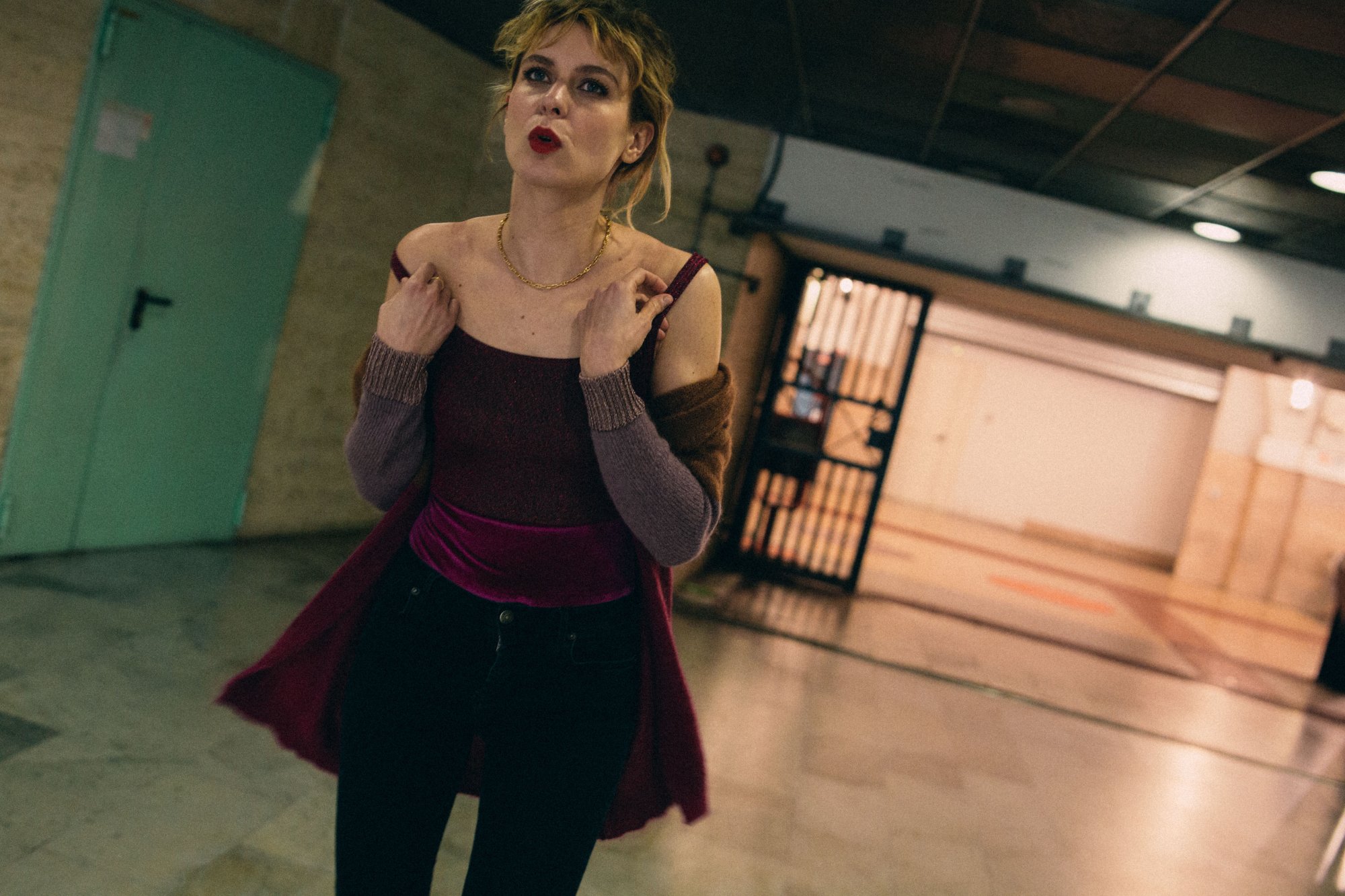
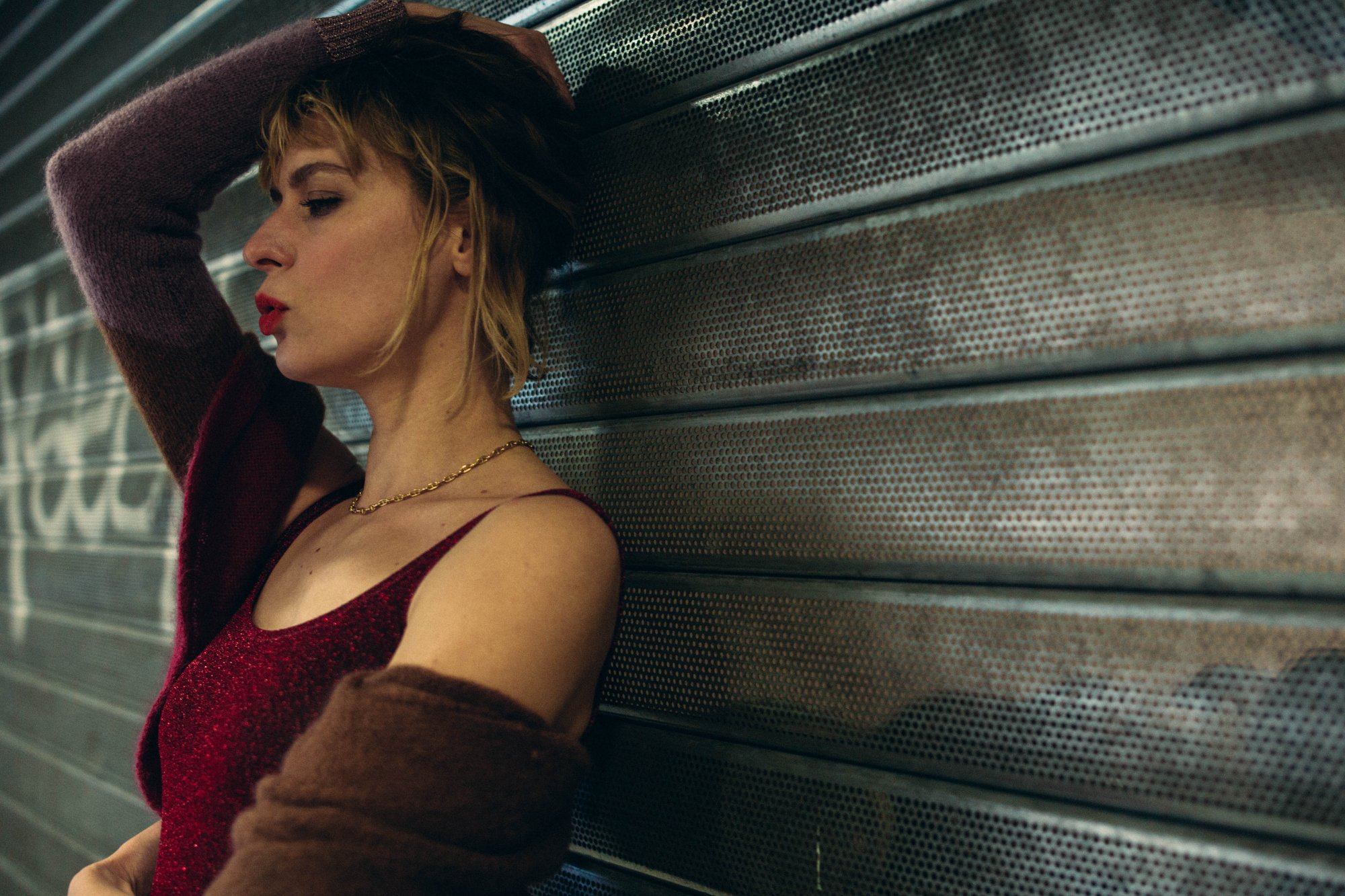
Superpower: I’d wake up gorgeous. It’s not wise as a superpower, but it’s useful…to better fight the day ahead! I don’t mean with makeup, but waking up refreshed and well rested…what a dream! For a long time now I’ve woken up looking I’ve been punched in the face, I don’t know why.
Getting up, glancing at the mirror and say, “Wow, I’m beautiful. It was really a good sleep.”

The last series you binge-watched:
For now, I’m bingeing “Love” and I must say, I really like it…although I’ve actually watched so many.
________________________
What does “being an actress” mean to you?
________________________
It’s doing a privileged job, it’s something where you must not spend too much time looking at yourself, this is also a great temptation of this job, but it’s really the contrary; you have to put yourself out there and look at the outside and learning from the outside what you need for your work, not only from what’s inside.
And, when you manage to do it well, humbly, bravely — meaning doing things that are not easy — it means that you have the luxury of getting others to feel something, you have the responsibility of a small joy, of a superficial one, but the divertissement is something important in people’s everyday life.
It’s, therefore, a small, but necessary, responsibility.
